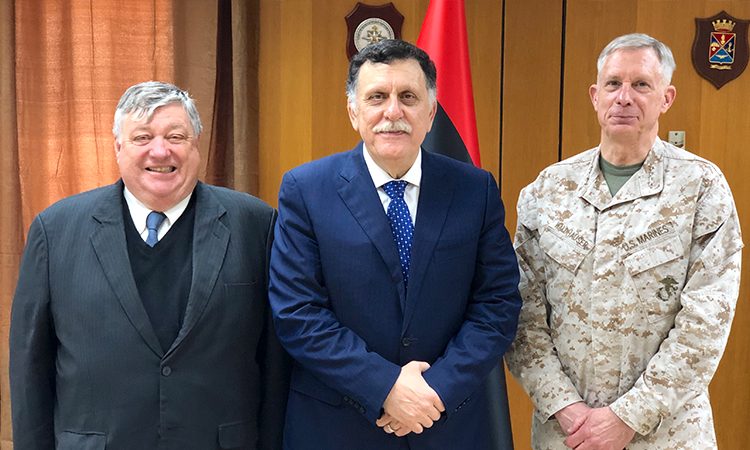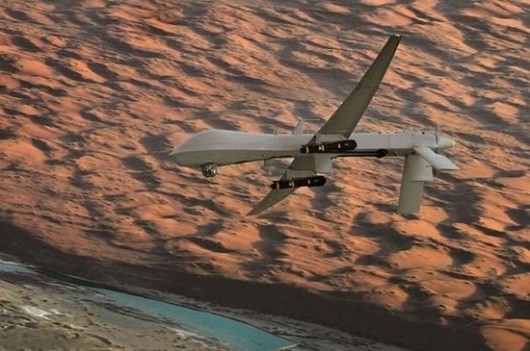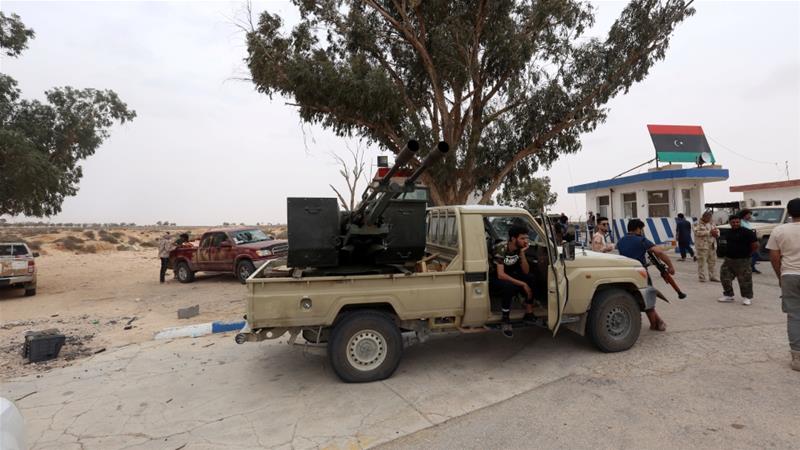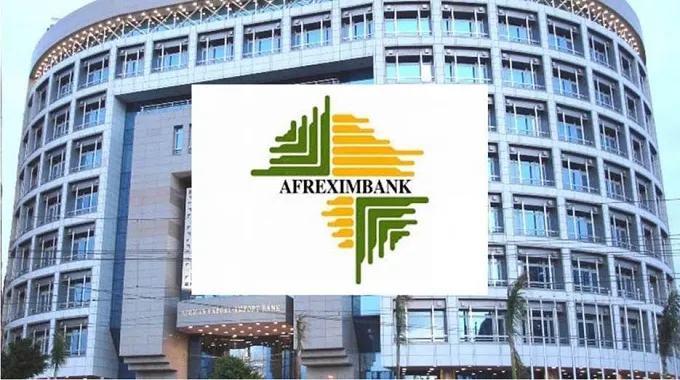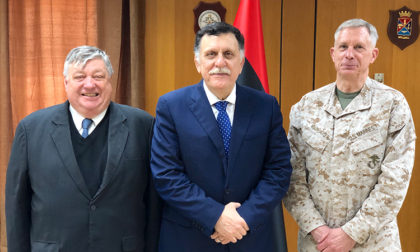 The United States Tuesday promised to prop up the UN-backed Government of National Accord (GNA) in Tripoli with $500,000, earmarked to improve security in the oil-rich country that has descended into lawlessness.
The United States Tuesday promised to prop up the UN-backed Government of National Accord (GNA) in Tripoli with $500,000, earmarked to improve security in the oil-rich country that has descended into lawlessness.
The US pledge was made by US ambassador to Libya Peter Bodde and AFRICOM Commander Gen. Thomas Waldhauser during meetings with GNA leader Faiez Serraj, Minister of Interior Fathi Bashaga and other senior GNA officials.
The support comes “in rapid-response non-lethal assistance in support of the Ministry of Interior efforts to strengthen the capacity of the Tripoli Security Directorate, help implement international standards at key airports, and improve Libya’s border security management capability,” the US ambassador to Tripoli said in a statement.
“This new assistance complements the United States’ $30 million in ongoing security assistance in support of the GNA priorities,” the diplomat said, adding these priorities also include “clear unexploded ordinance in Sirte, bolster security sector reform, and build coordination between relevant actors ahead of elections.”
During the meetings, the US officials reiterated Washington’s support for Libya “as a unified, secure, and prosperous state under a government that can serve the Libyan people.”
They also stressed “the importance of swiftly implementing comprehensive economic reforms, further stabilizing oil production and ensuring greater fiscal transparency of Libya’s economic institutions, including the Central Bank of Libya,” underlining that the US “will not tolerate spoilers to the political process.”
While these initiatives are critical to bolster security and address current threats, the only lasting solution for Libya is to overcome its political impasse, the ambassador said, renewing Washington’s commitment to political reconciliation in the country and its strong support of United Nations Special Representative of the Secretary-General Dr. Ghassan Salamé as he works to facilitate dialogue, improve governance, and help Libyans prepare for credible and secure elections.
The GNA, installed in December 2015 under the Skhirat deal signed in Morocco, has failed to provide security to Libyans as it struggles to impose its authorities across the country.
Terror and gang groups have taken advantage of the vacuum left by the removal of former strongman Muammar Gaddafi by a NATO-backed revolution in 2011.
The GNA is also competing with a rival government based in the east of the country. The Beida administration is supported by so-called Libyan National Army (LNA) led by former Gaddafi’s military aide Khalifa Haftar. It has been receiving support from several foreign countries including the UAE, Egypt and Russia.
AFRICOM has backed the GNA by carrying out several air raids against terror groups including al-Qaeda and the Islamic State group.
